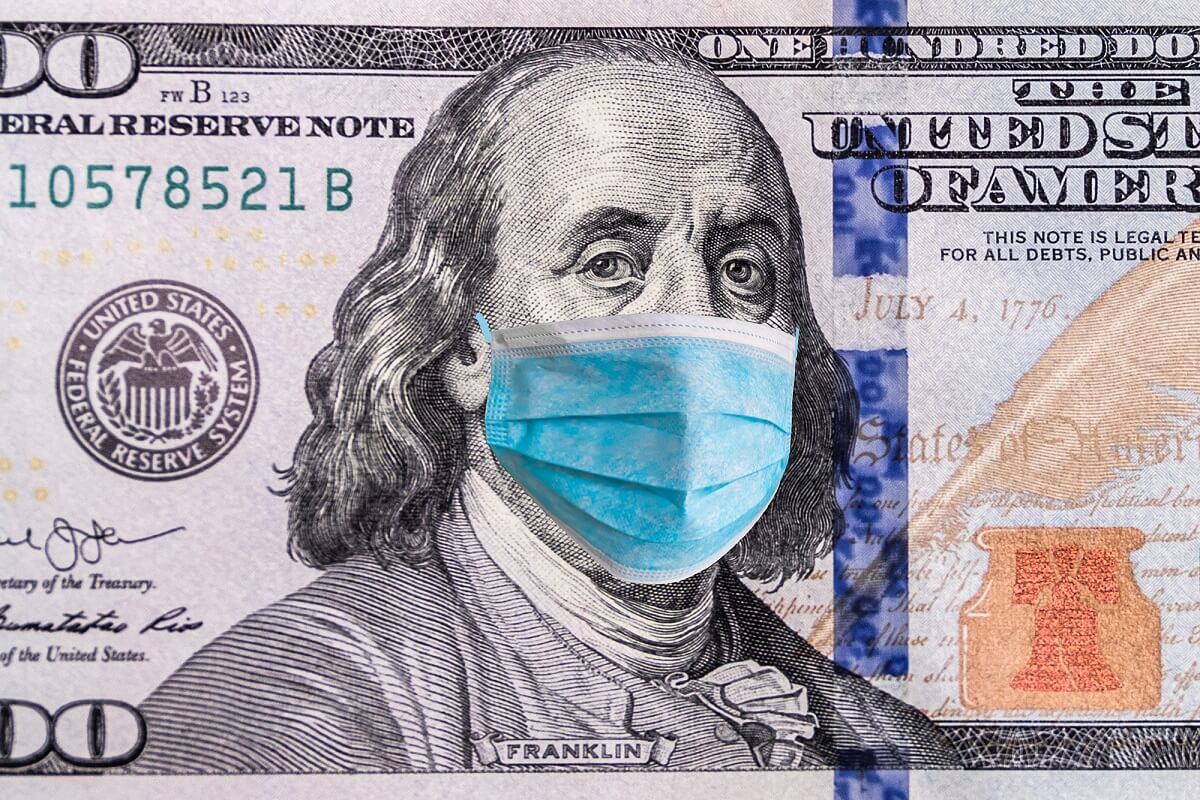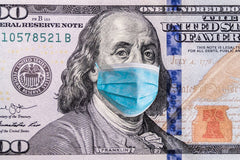Your cart is currently empty.
Free shipping on orders over $50

- Sep, 22 , 21
- 0 comments
Is Money Dirty?
Is money dirty? The money that we use daily is filthy. There are thousands of bacteria on money because of the large number of people who handle money daily, the many objects they touch, and the different environments in which money circulates. Studies have found that money changes hands a minimum of 55 times in a single year. Surprisingly, a large number of dollar bills tested in the United States have been shown to have traces of cocaine on them, as dollar bills are used to inhale the narcotic. You might want to think about employing a bill counting machine to reduce your direct exposure to potentially contaminated money. How dirty is money? How dirty are coins? Here’s a look at the answers to those questions, as well as some advice on how dirty are coins and how to clean dollar bills.

How Much Bacteria is on Money?
Although all money is dirty, US currency is particularly unsanitary as it is 75% cotton and 25% linen - creating fertile ground for germs to land. As more research is pointing towards how filthy money can be, the question, “can you get sick from handling money?” often arises. However, paper money does not have the ideal moisture conditions nor temperature to ensure that bacteria will multiply. Rather, the absorbent nature of money makes it harder for germs to be transmitted from one note to the next, making it very unlikely to get ill from handling money. However, it is still a good habit to wash your hands after handling paper bills, as the germs cling to the note that they are on and can spread to your hands. Money acts as the perfect vessel to transport germs and leave these germs on surfaces accessible to the general public such as door handles and elevator buttons.
A Closer Look at the Germs on Money
Money carries a variety of germs including bacteria, viruses, and protozoa. Researchers analyzed paper currency under a microscope and found that the most common microbe present on paper money was propionibacterium acnes - the bacteria that causes acne breakouts. Both paper notes and coins can harbor germs. Another study found that a superbug, S. aureus (MRSA), can live on coins.
How to Prevent the Spread of Pathogens
Preventing the spread of pathogens is the most effective way to curb the spread of infectious diseases. The COVID-19 pandemic has shown the whole world what can happen if the spread of pathogens gets out of control. The World Health Organization (WHO) encourages preventative measures for avoiding COVID -19 such as hand washing, sanitizing surfaces correctly, and getting vaccinated.

Different measures are required to contain the movement of pathogens in certain circumstances:
- Cleaning surfaces - Use disinfectants that target fungi and bacteria.
- Personal hygiene - Wash regularly with soap to remove any pathogens that may be present on your skin. When sneezing or coughing, always try to do so into a tissue or into your elbow to prevent the spread of pathogens that may be present in the droplets.
Tips on How to Disinfect Money
- Use an alcohol wipe on your credit card or debit card - This is regarded as a preferred payment method by the centers for disease control (CDC) as the owner of the card is the only person that should be handling it. Although it may seem ideal in theory, in practice it is harder to prevent germs from getting onto your card as it still has to come into close contact with the POS terminal. Do not use hand sanitizer on any of your cards as it may damage them during the drying process. Alcohol wipes are a far better option to ensure that your cards are sufficiently sanitized.
- Sanitize your coins - Coins may be cleaned with sanitizing wipes or may be washed in warm water with soap. The latter option is recommended as it has been proven to be the best option to break up pathogens such as COVID-19. If this method is not available, alcohol wipes and hand sanitizer are still good alternatives.
- Dry your dollar bills in the sun - Wetting or washing your dollar bills is never a good idea. Rather, leave them out in the sunshine. UV light has been proven to combat viruses such as COVID-19 as it can break apart the bonds that form viruses and bacteria. UV sterilizer machines utilize UV-C technology to sterilize a wide variety of household objects.
- Wash your hands - Always make sure that you are washing your hands frequently throughout the day to prevent getting any germs and bacteria onto your money. If soap and water are not immediately available, hand sanitizer is a good alternative to ensure that your hands are always clean and the likelihood of passing on any germs is low.
Conclusion
Money has been around for centuries and is something that we come into contact with daily. Naturally, the fact that money continuously changes hands means that currency all across the world comes into contact with a multitude of different germs and bacteria. The COVID-19 pandemic has shown how rapidly pathogens can spread and how important it is to take precautionary measures that help to mitigate and prevent the spread of disease. Money can be sanitized in a variety of different ways, depending on whether paper notes or coins are being cleaned. In recent years there has been a significant increase in people choosing contactless payment as an alternative payment option. The popularity of this payment method will likely rise in the future as people continue to become more vigilant about the germs that we come into contact with daily.
Search
Custom Menu
Recent Post
Archive
- April 2022
- September 2021
- July 2021
- December 2020
- September 2020




